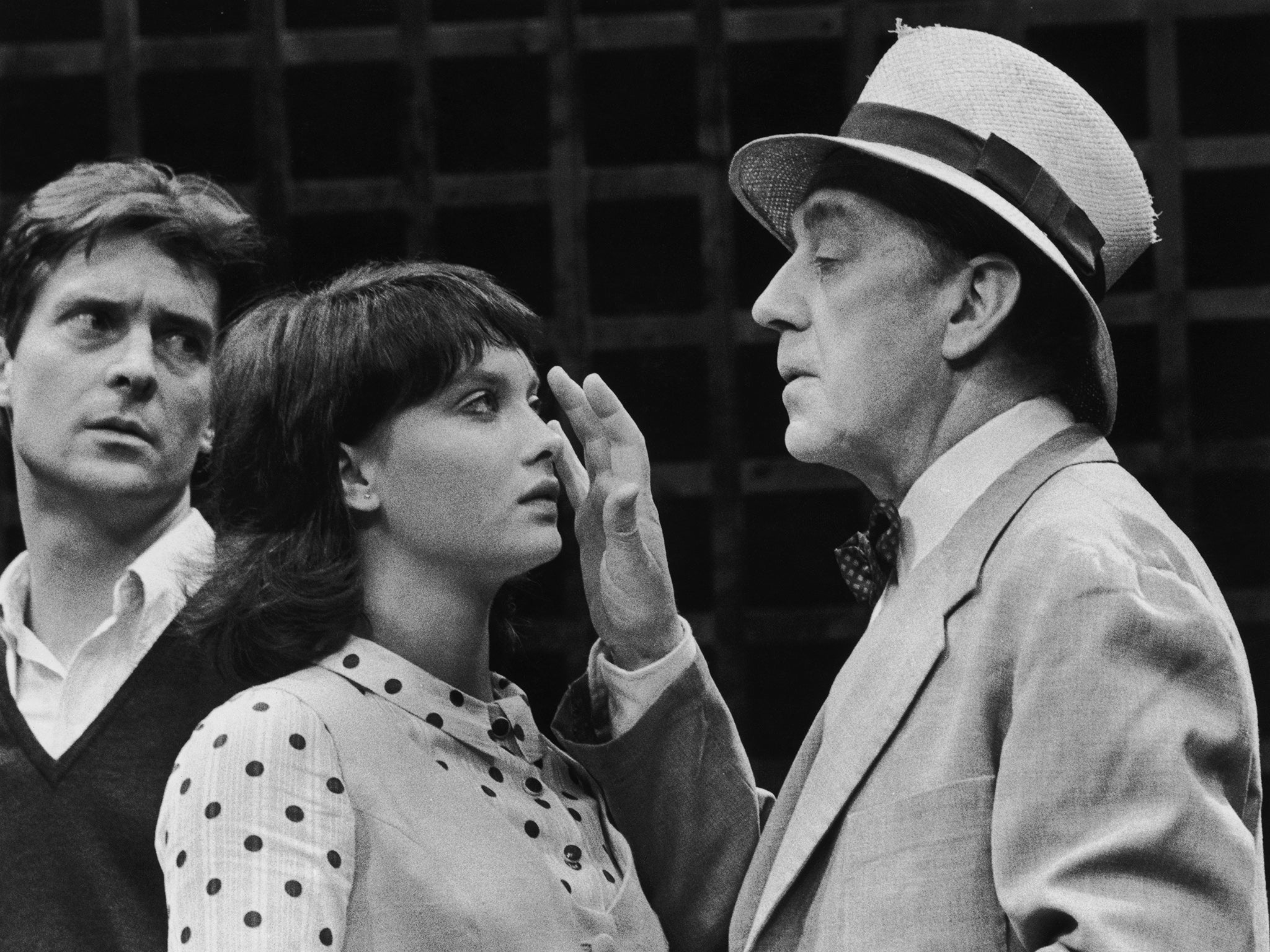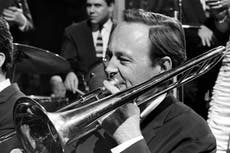Nicola Pagett: ‘Upstairs Downstairs’ actor who entertained millions
The drama gripped viewers in 50 countries over five series in the 1970s

Nicola Pagett, who has died of a brain tumour aged 75, soared to stardom in the television period drama Upstairs Downstairs as Elizabeth, a Conservative politician’s headstrong, rebellious daughter bringing her passionately held socialist beliefs and tortured love to the Bellamy household of 165 Eaton Place, in London’s posh Belgravia district.
The drama, following the lives of a wealthy family and their servants in the first three decades of the 20th century, gripped up to 300 million viewers in 50 countries over five series between 1971 and 1975, and won seven Emmy Awards in the US.
Pagett, keen to take other roles, left two years before the drama ended, following her character’s support for the suffragettes; an unconsummated marriage to a socialist poet who arranges for her to sleep with his publisher (giving her a baby daughter); and a short affair with a philandering Anglo-Armenian.
Leading parts kept coming her way on screen for more than 20 years, but one of the first, her portrayal of Leo Tolstoy’s doomed heroine in a 1977 serialisation of Anna Karenina, met with mixed reviews.
“I’d love to have played it when I was a bit older,” she said shortly afterwards. “But, by doing it, I’ve learned a lot. It was a traumatic experience. With all that under my belt, perhaps I could try again.”
In the 1987 Dennis Potter play Visitors, she played a wife cheating on her business executive husband with his new American boss.
Then, she successfully switched to comedy as promiscuous Liz Rodenhurst in both series of A Bit of a Do (1989), written by David Nobbs. It began with middle-class Liz sleeping with David Jason’s working-class Ted Simcock at their children’s wedding reception.
But Pagett’s career was cut short after being diagnosed with manic depression in 1997.
Two years earlier, while appearing as Mrs Prentice in a National Theatre tour of What the Butler Saw, a Joe Orton play set in a psychiatric clinic, she had experienced a breakdown.
She was herself treated at a clinic, the Priory, and wrote about dealing with mental illness in her 1997 book Diamonds Behind My Eyes.
It included the revelation that she had been obsessed with a man she called “the Stranger” and bombarded him with love letters – and black lace from a pair of knickers – before collapsing and being sectioned.
Tony Blair’s press secretary, Alastair Campbell, turned out to be the man.
“Two years were taken from me and I don’t want to throw them away,” said Pagett in 1997 as she planned a return to acting after experiencing three nervous breakdowns.
But the comeback was brief, Pagett continued taking lithium to control her illness and she lived the rest of her life reclusively.
She was born Nicola Mary Pagett Scott in 1945 in Cairo, Egypt, to Barbara (nee Black) and Herbert Scott, a roving Shell Oil executive. His job took the family to Hong Kong, then Yokohama, in Japan.
At the age of eight, while attending the Saint Maur International School there, she appeared in a production of Snow White and knew she wanted to become an actor.
Four years later, she was sent to the Beehive, a girls’ boarding school in Bexhill, East Sussex.
After graduating from Rada in 1964, Pagett joined Worthing repertory company, making her debut in the title role of Cornelia at the Connaught Theatre.

Her first television appearance, in Allan Prior’s drama The Girl in the Picture (1964) as a young woman cajoled into taking part in a beauty contest and falling for Peter Purves’s young photographer, was spotted by director Robert Helpmann, who cast her as hotel maid Carmela, alongside Vivien Leigh, in a 1965 tour of Paul Osborn’s play La Contessa.
While appearing occasionally on TV and attracting screen and stage reviews that initially tended to concentrate on her beauty, Pagett built up a strong body of work in the theatre.
She played Hermia in A Midsummer Night’s Dream (Open Air Theatre, Regent’s Park, 1967), then made her London West End debut as Nora Lambert in A Boston Story (Duchess Theatre, 1968).
It was followed by Elizabeth, the daughter-in-law, opposite Alec Guinness, in A Voyage Round My Father (Haymarket, 1971); Justine in A Family and a Fortune (Apollo, 1975); Bella Manningham in Gaslight (Criterion, 1976); and Stella in Yahoo (Queen’s, 1976).
Buoyed up by more than a decade of constant work on television, Pagett then took to the American stage as Kate, wife of a film director acted by Harold Pinter, in a revival of the playwright’s Old Times (Henry Fonda Theatre, Los Angeles, 1985).
Her other TV roles included Elizabeth Fanshawe, the doomed bride of Leonard Whiting’s scientist, in Frankenstein: The True Story (1973); Adele Fairley, the squire’s wife, in A Woman of Substance (1984); and Julia Stitch, a socialite based on Diana Cooper, in Scoop (1987).
She also acted Sonia Drysdale, owner of a hairdressing salon, in Roy Clarke’s sitcom Ain’t Misbehavin’ (1994-95), a saga of inter-marital strife.
Pagett appeared only rarely in films. She followed her portrayal of Princess Mary in Anne of the Thousand Days (1969) by playing Clare, a young bride, alongside Peter Sellers and Goldie Hawn in the comedy There’s a Girl in My Soup (1970) and Anna, girlfriend of Timothy Bottoms’s Czech resistance fighter, in the wartime thriller Operation Daybreak (1975).
Her part as the only female member of a wartime army concert party in Privates on Parade (1982), a screen version of Peter Nichols’s stage play, was, she said, “my one sojourn into screen nudity”.
But she lamented how it emerged from the editing suite. “It should have been a sweet scene,” she said, “but they cut out the reason for it and just left the nudity, which was pretty explicit.”
Her last film role was as Dotty Blundell in An Awfully Big Adventure (1995).
Following the diagnosis of her illness, Pagett appeared on TV in a 1998 episode of Dangerfield before starring as Sally Kegworthy in the 2000 sitcom Up Rising.
Her 1977 marriage to actor-writer Graham Swannell ended in divorce 22 years later. She is survived by their daughter, Eve.
Nicola Pagett, actor, born 15 June 1945, died 3 March 2021



Bookmark popover
Removed from bookmarks